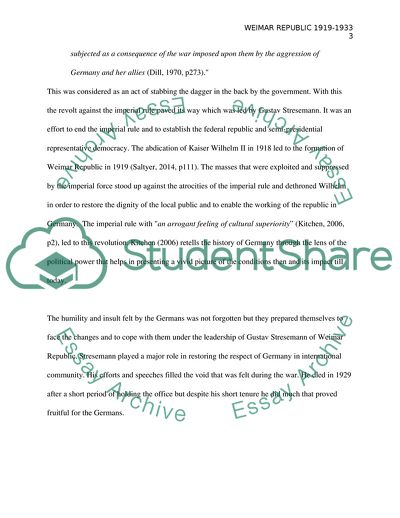Cite this document
(Germany During Weimar Republic Essay Example | Topics and Well Written Essays - 1500 words, n.d.)
Germany During Weimar Republic Essay Example | Topics and Well Written Essays - 1500 words. https://studentshare.org/history/1878179-weimar-republic-1918-1933
Germany During Weimar Republic Essay Example | Topics and Well Written Essays - 1500 words. https://studentshare.org/history/1878179-weimar-republic-1918-1933
(Germany During Weimar Republic Essay Example | Topics and Well Written Essays - 1500 Words)
Germany During Weimar Republic Essay Example | Topics and Well Written Essays - 1500 Words. https://studentshare.org/history/1878179-weimar-republic-1918-1933.
Germany During Weimar Republic Essay Example | Topics and Well Written Essays - 1500 Words. https://studentshare.org/history/1878179-weimar-republic-1918-1933.
“Germany During Weimar Republic Essay Example | Topics and Well Written Essays - 1500 Words”. https://studentshare.org/history/1878179-weimar-republic-1918-1933.


